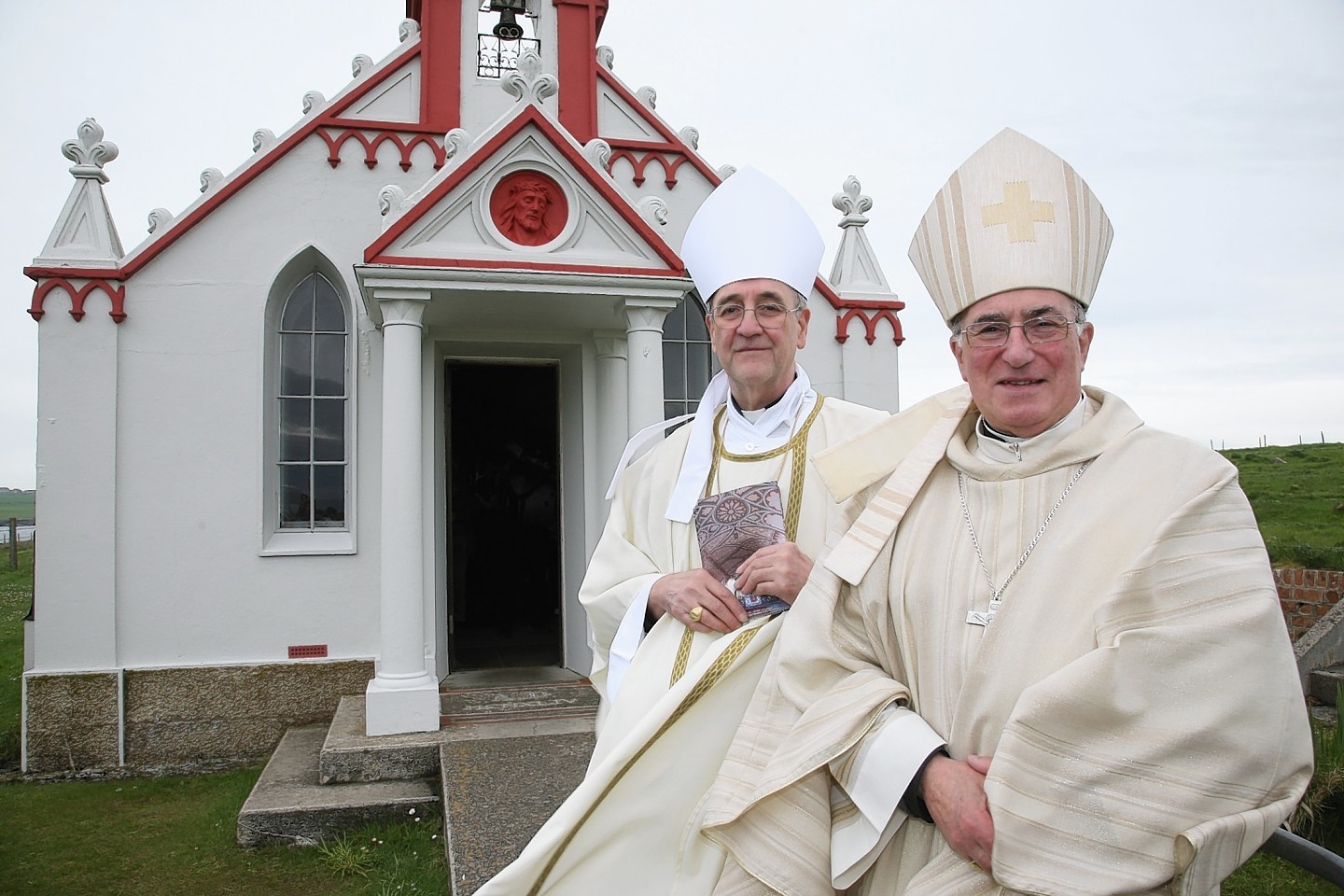Pope Francis sent a special blessing to mark the 70th anniversary of one of Scotland’s most unusual landmarks.
The Italian Chapel in Orkney – built by prisoners of war using two Nissen hunts and whatever discarded materials they could lay their hands on – has become the islands’ number one tourist attraction.
The World War II relic is now a grade A listed building, attracting 100,000 tourists a year.
In his message, Pope Francis prays “that this chapel, built in time of war, may continue to be a sign of peace and reconciliation”.
This year marks the 70th anniversary of the departure of the Italian prisoners of war from Orkney and, yesterday, a special mass was held in the tiny chapel.
Mass was celebrated by the Nuncio – Papal Ambassador to Great Britain, Archbishop Antonio Mennini – and former Glasgow Archbishop Mario Conti.
The Nuncio read the text of Pope Francis’s message to the congregation.
It said: “Conflict cannot be ignored or concealed. It has to be faced. But if we remain trapped in conflict, we lose our perspective, our horizons shrink and reality itself begins to fall apart.
“In the midst of conflict, we lose our sense of the profound unity of reality….the best way to deal with conflict…..is the willingness to face conflict head on, to resolve it and to make a link in the chain of a new process. ‘Blessed are the peacemakers’ (Matthew 5:9)
“His Holiness prays that this chapel, built in time of war, may continue to be a sign of peace and reconciliation to all those persons who work for the God given dignity of each and every human person and he imparts to all those who participate in this pilgrimage a special Apostolic Blessing as a pledge of abundant graces from heaven while placing them under the protection of Our Blessed Mother Mary, Queen of Peace.”
The mass included a group of visitors from the town of Moena in the north of Italy, home of Domenico Chiocchetti, the main artist of the chapel.
Ironically, most of the Italians who worked on the iconic building left on September 9, 1944, to go to a camp in England – just weeks after their labour of love had been completed.
